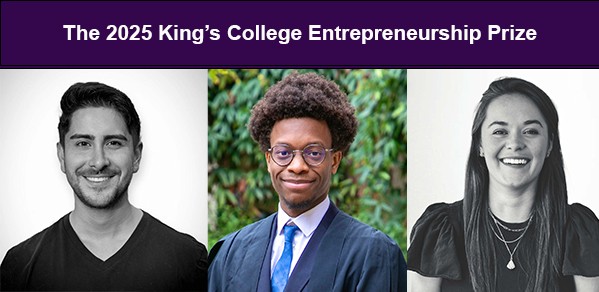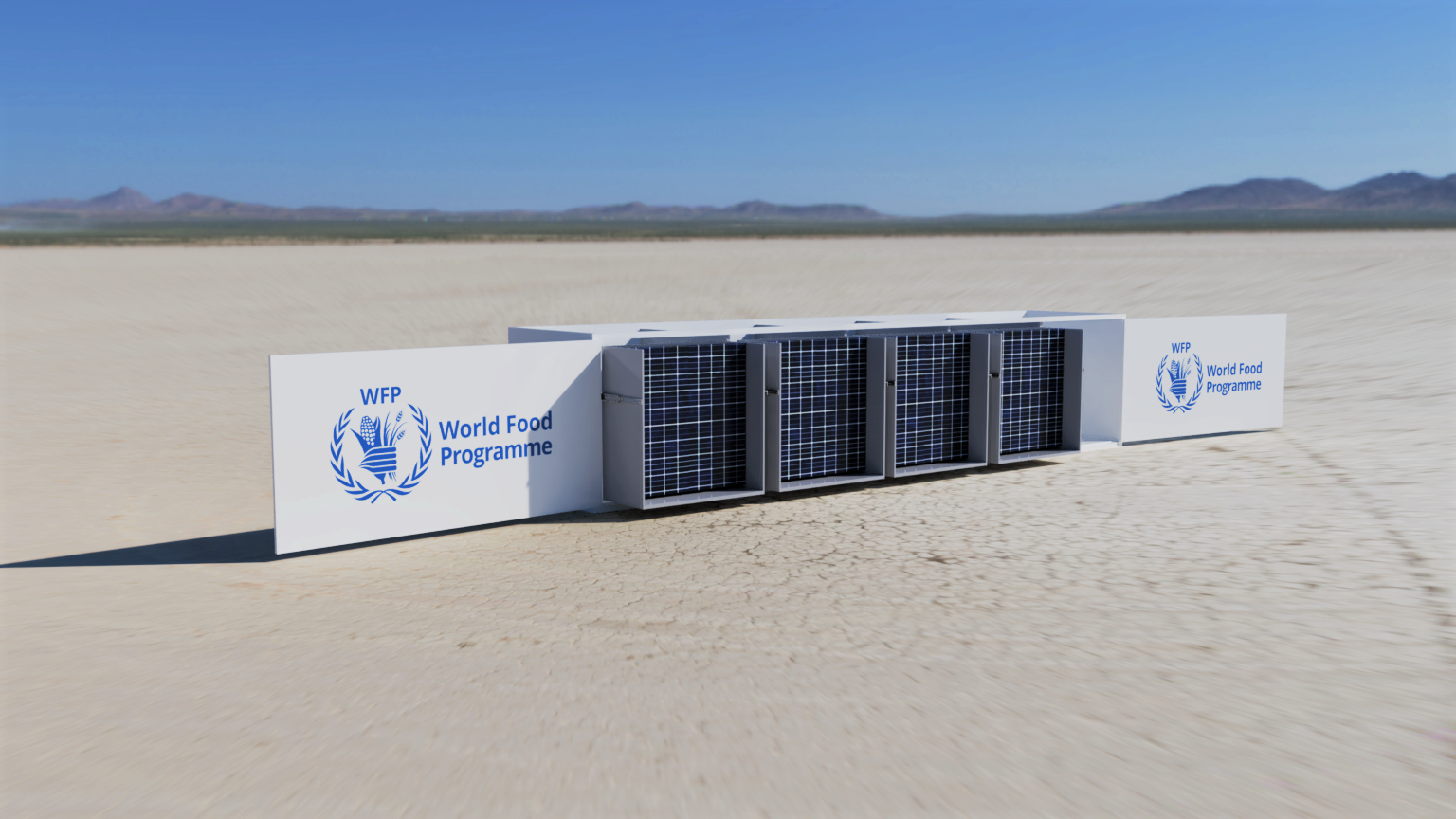
Cambridge Engineering alumni Nathan Jackrazi and Dr Amy Rochford have been announced the winners of the 2025 King’s College Entrepreneurship Prize with their start-up Axo Neurotech. Third prize went to MPhil student Chris Tagnon, co-founder of CAST Energy.
Winning the 2025 King’s College Entrepreneurship Prize is particularly meaningful because this is where our journey began. We plan to use the prize money to support a specific internship programme for a Cambridge student.
Dr Amy Rochford
The competition is intended to encourage King’s members, both past and present, to develop their entrepreneurial ideas and convert their creativity and know-how for sustainable commercial and social benefit.
First Prize – £20,000
Axo Neurotech is building next-generation neural interfaces using cutting-edge material science and a biology-first approach to solving the problem of integrating electronics with the body. The aim is to improve patients’ lives.
Nathan has a Master's degree in Industrial Systems, Manufacture, and Management (ISMM) from the Institute for Manufacturing (IfM), part of the Department of Engineering.
Dr Rochford has a PhD in Engineering, Bioelectronics and Clinical Neuroscience, which she gained while working under the supervision of Professor George Malliaras in the Bioelectronics Laboratory at the Department of Engineering.
The duo, who first met at King’s College, launched Axo Neurotech to create the first truly natural interface between humans and machines.
“The near-term goal is to help people who are living with neurological disorders, and the long-term ambition is to transform how every human interacts with technology,” said Nathan, who has experience working on robotics for disability solutions. He is driven by the limitations of existing human-machine interfaces.
Dr Rochford has dedicated her career to understanding the human nervous system and finding ways to treat nervous system diseases. This mission is fuelled by her personal experience with her sister’s neurological condition. This deep commitment led Dr Rochford to pioneer a biology-first approach to neural interfaces during her PhD.
Listen below to a podcast interview with Dr Rochford, where she shares her journey from academia to industry, with a focus on the potential of neurotechnology to transform treatments for brain and nervous system injuries.
“Winning the 2025 King’s College Entrepreneurship Prize is particularly meaningful because this is where our journey began,” said Dr Rochford. “The recognition from King’s carries real weight. We plan to use the prize money to support a specific internship programme for a Cambridge student who is excited by our mission and who wants to experience the lightning-fast pace of building a neurotech start-up in Silicon Valley.”
Third Prize – £5,000

CAST Energy is an early-stage start-up born from co-founder Chris Tagnon’s thesis project at University College London in collaboration with the United Nations’ World Food Programme (UN WFP).
CAST Energy offers a solar power generation system, designed for easy implementation in remote areas thanks to its containerised format. The innovative system is fully modular and transportable in a standard 20- or 40-foot container that can generate up to 240 kW and offer storage capacity of 960 kWh, surpassing most of the solutions on the market.
“Our target audiences are communities and organisations requiring clean, reliable energy in remote or off-grid areas,” said Chris, who has been studying for an MPhil in ISMM at Cambridge.
“Hundreds of millions of people currently don’t have access to electricity due to underdeveloped or unreliable electricity grid systems. Many more consistently rely on diesel generators for their power, which is both unsustainable and expensive. Several organisations, notably in the humanitarian sector, but also in events or agriculture, operate in remote places and rely on fossil fuels for their energy. Our aim is to give these stakeholders sovereignty over their power generation with a clean and affordable solution.”
Together with his co-founder Joseph de Solages, Chris has been working on developing a small-scale prototype to validate their solar panel deployment system.
Everything I have learned at Cambridge, particularly around manufacturing engineering and strategic management, has been incredibly useful in defining the path to take CAST Energy from idea to reality.
The origins of CAST Energy began with Chris’ thesis project with the UN WFP, which set out to design a sustainable and reliable power generation system for areas with emergency need. The objective was to create an alternative to diesel generators, which are currently widely used in off-grid environments.
Chris said: “It was found that across all their peacekeeping operations, the UN spent around $100 million in fuel expenditures, the consumption of which accounted for nearly half of the organisation’s greenhouse gas emissions or about one million tonnes of CO2.
“The UN WFP’s requirements, which I designed to, highlighted gaps in existing commercially available solutions when it came to ease of deployment, general practicality, and power generation and storage capacity. The conceptual design that I made offered improvements on the status quo, which satisfied the UN WFP’s requirements and prompted a conversation around commercialisation.”
On winning third prize in the competition, Chris said: “It was a great feeling to have been selected as a winner of the 2025 King’s Entrepreneurship Prize and we are incredibly proud to have made it this far. The aim will be to use the prize winnings to fund our prototype, which will help us secure a first pilot project.”
Summing up his time at Cambridge, Chris added: “Everything I have learned this year at Cambridge, particularly around manufacturing engineering and strategic management, has been incredibly useful in defining the path to take CAST Energy from idea to reality. These learnings will continually be applied in the development of CAST Energy moving forward.
“We envision our solution not only reducing carbon emissions but also empowering communities by providing them with reliable and affordable electricity, ultimately improving their quality of life and contributing to their economic and social growth.”
- Earlier this year, as a member of the King’s Entrepreneurship Lab, Chris interviewed Cambridge Engineering alumna Caroline Hargrove CBE, Chief Technology Officer at Ceres, a world-leading developer of low-cost, next-generation fuel cell and green hydrogen technology. Watch below: From Formula 1 to health tech and hydrogen power ventures: a deep dive into the career of award-winning engineer Caroline Hargrove CBE.
Adapted from a King’s College news article.

